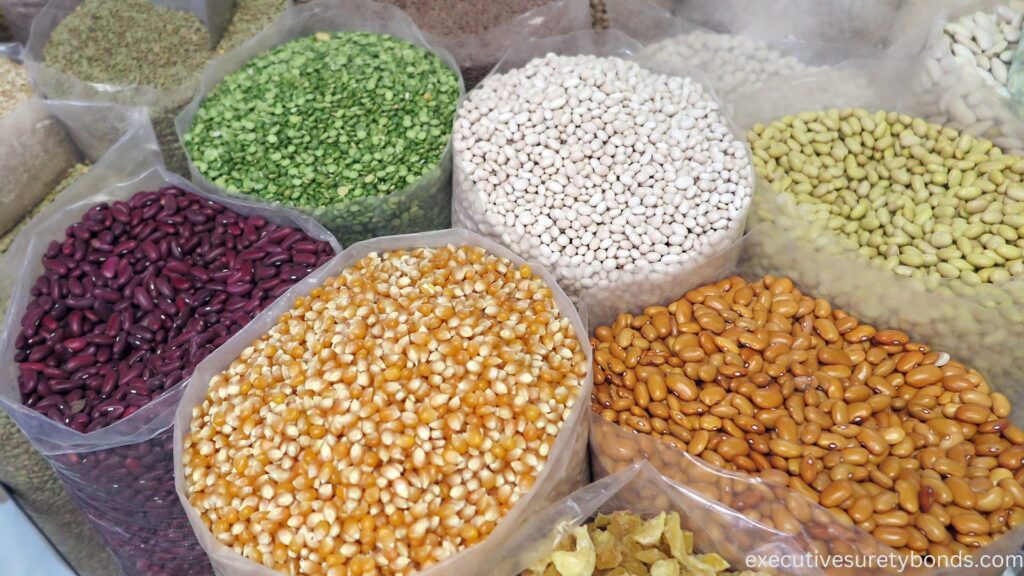Introduction
When you sit down to enjoy a plate of pasta or a loaf of bread, have you ever wondered about the journey that grain takes from the fields to your plate? In Louisiana, the grain industry is an essential part of our agriculture, and to ensure that everyone involved in this process plays fair and square, there’s something called the Louisiana Grain Dealer Bond, often referred to as LACC (Louisiana Agricultural Commodity Commission). In this article, we’ll delve into the significance of the Louisiana Grain Dealer Bond and its role in supporting the grain industry in the state.
Understanding the Louisiana Grain Dealer Bond (LACC)
The Louisiana Grain Dealer Bond, or LACC, is a financial guarantee required by the Louisiana Department of Agriculture and Forestry (LDAF) from grain dealers. This bond ensures that grain dealers engage in ethical and lawful grain transactions.
Why is it Required?
The requirement for a Louisiana Grain Dealer Bond serves several important purposes:
- Fair Trade: It ensures that grain dealers conduct fair and honest grain transactions. This bond acts as a safeguard for both grain producers and buyers, assuring them of ethical business practices.
- Consumer Protection: The bond provides protection for consumers who purchase grain-based products. It ensures that the grain used in these products meets quality standards and hasn’t been mishandled during transactions.
- Regulatory Compliance: Grain dealers must adhere to state laws and regulations governing grain trading. If they fail to do so, the bond can be used to cover fines and penalties.
How Does it Affect Grain Dealers and Consumers?
The presence of the Louisiana Grain Dealer Bond affects both grain dealers and consumers:
- Grain Dealers: Grain dealers must obtain and maintain this bond as part of their legal obligations. It represents a financial commitment to ensure they conduct grain transactions ethically and in compliance with state regulations.
- Consumers: Consumers benefit from the assurance that the grain used in the products they buy is of high quality and has been handled properly throughout the supply chain. This bond adds a layer of trust to the grain industry, which indirectly impacts the quality of grain-based products consumers enjoy.
Conclusion
In conclusion, the Louisiana Grain Dealer Bond (LACC) is a vital component of Louisiana’s grain industry. It helps ensure that grain dealers engage in fair and responsible grain trading practices, benefiting both grain producers and consumers. Whether it’s the bread you enjoy with your breakfast or the pasta you savor for dinner, this bond plays a role in maintaining the integrity of the grain supply chain. So, the next time you have a grain-based meal, remember that the Louisiana Grain Dealer Bond is working behind the scenes to keep your food safe, ethical, and of the highest quality.
Frequently Asked Questions
Can a grain dealer in Louisiana obtain a single bond to cover multiple locations or facilities, or is a separate bond required for each location?
In Louisiana, a grain dealer may be required to obtain a separate Louisiana Grain Dealer Bond (LACC) for each location or facility, depending on the specific circumstances and the evaluation by the Louisiana Department of Agriculture and Forestry (LDAF). Each facility’s bonding requirements are assessed based on factors like the volume of grain handled and the nature of operations. Grain dealers should consult with the LDAF for guidance on their individual bonding obligations.
Are there any exemptions or reduced bond requirements for small-scale or family-owned grain dealers in Louisiana?
While there may be variations in bond requirements based on the size and nature of grain operations, there are generally no specific exemptions or reduced bond requirements solely based on being a small-scale or family-owned grain dealer in Louisiana. Bond requirements are typically determined by factors such as the volume of grain transactions and the types of grains handled. Grain dealers should consult with the LDAF for precise information on their bonding obligations.
What happens if a grain dealer fails to maintain their Louisiana Grain Dealer Bond (LACC) in good standing, and how does it impact their ability to conduct business?
If a grain dealer fails to maintain their Louisiana Grain Dealer Bond (LACC) in good standing, it can have significant consequences for their ability to conduct grain-related business operations. The bond is a legal requirement, and failure to comply with this requirement can result in penalties, fines, or even the suspension or revocation of the grain dealer’s license. This can halt their ability to handle grain transactions, impacting their business operations and compliance with state regulations. Grain dealers should prioritize compliance with bonding requirements to continue operating legally in Louisiana.

